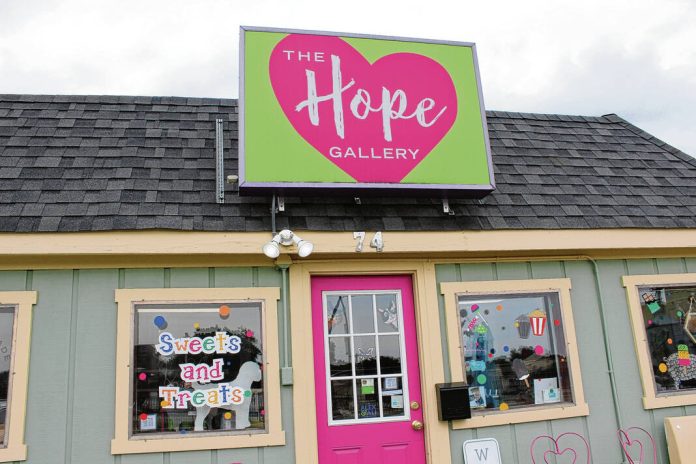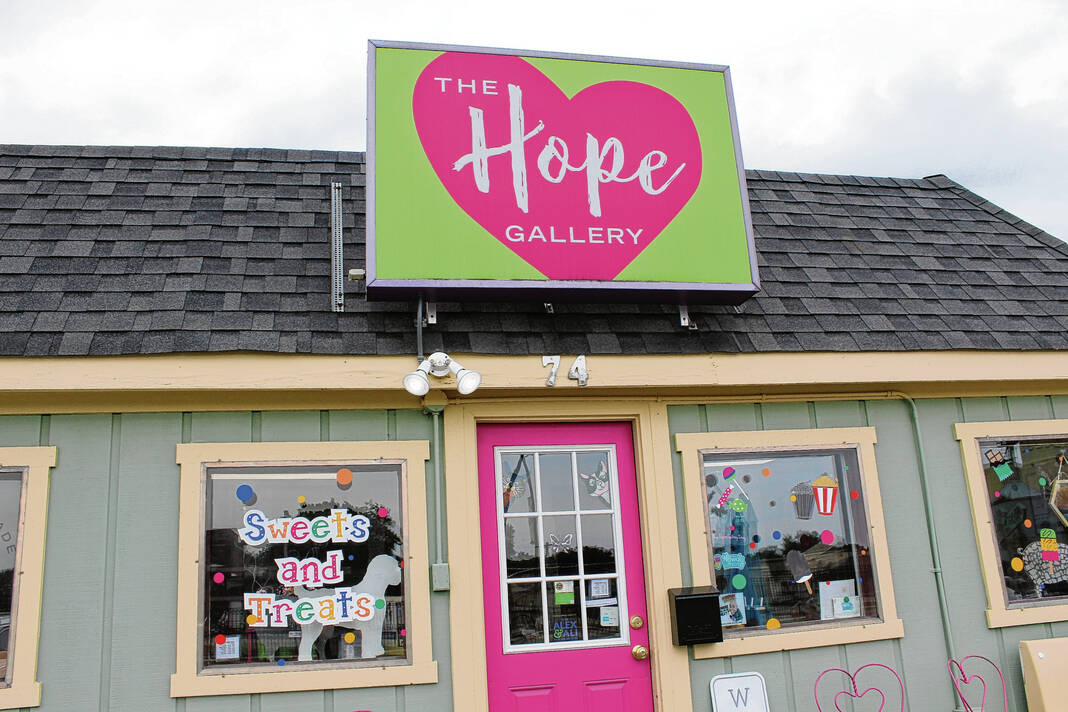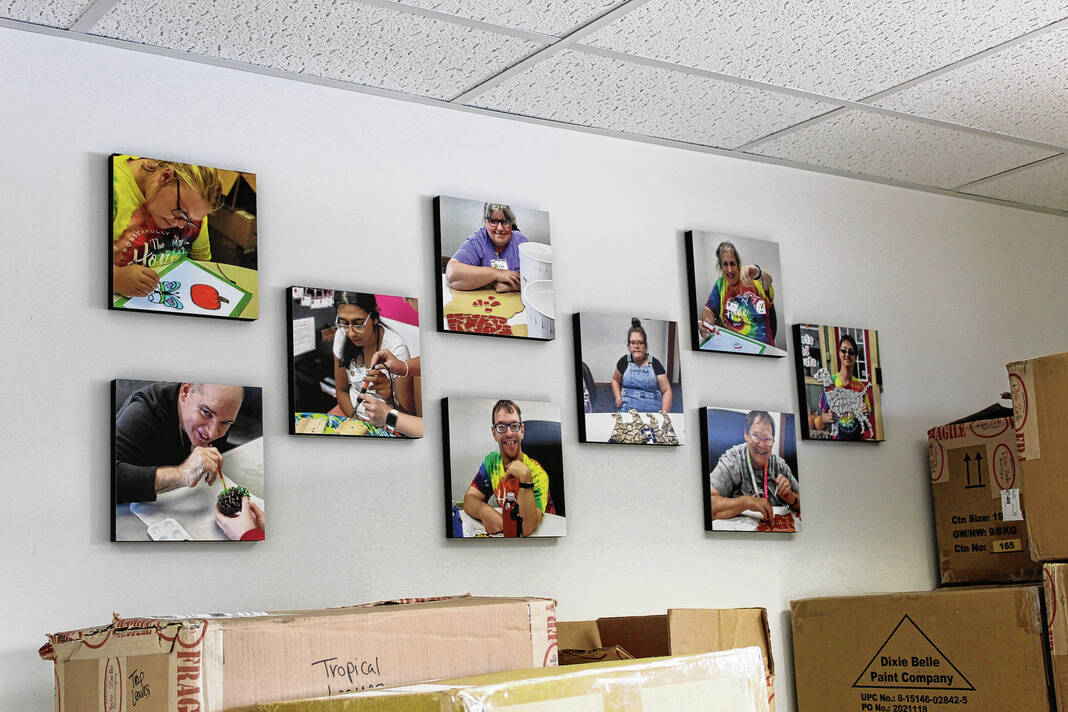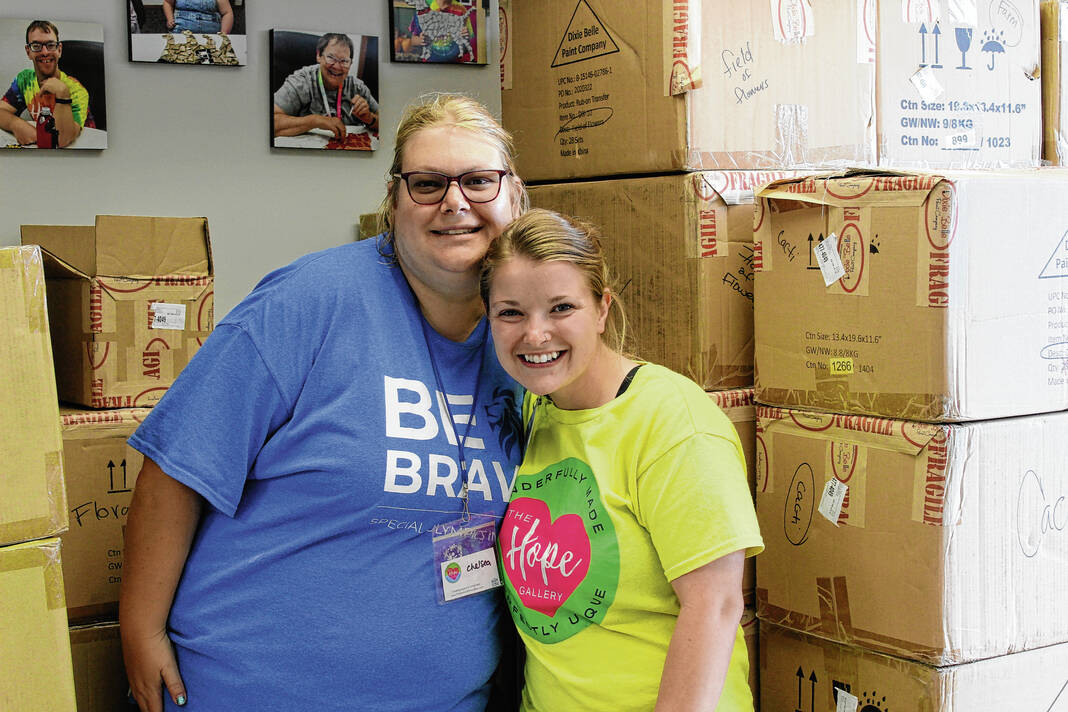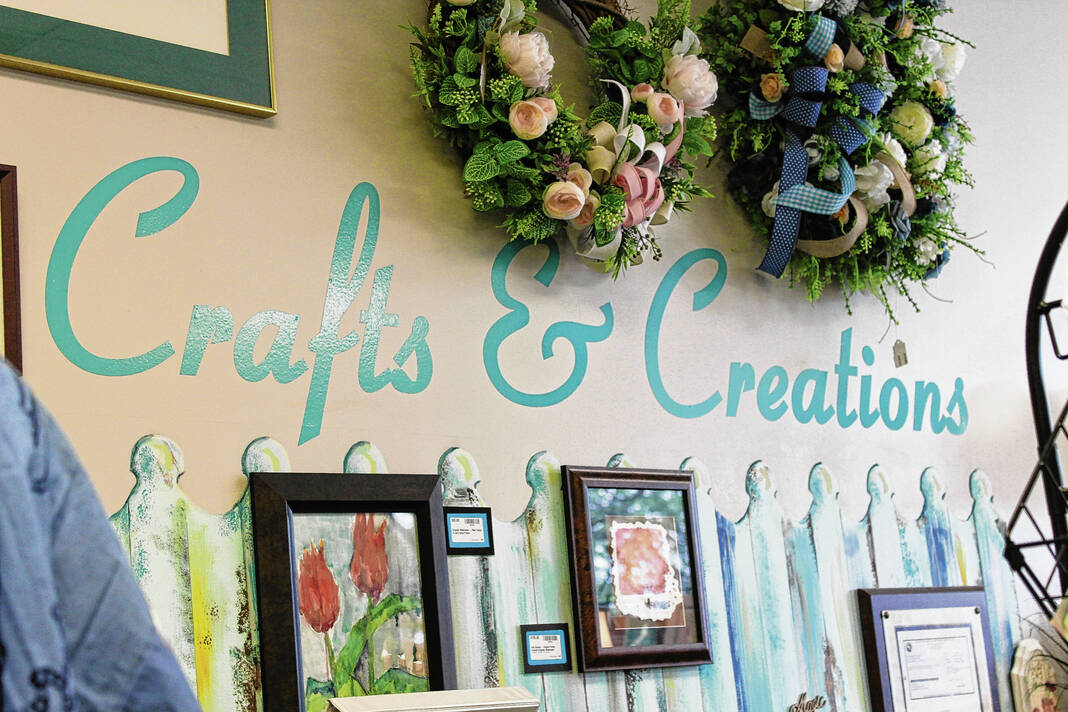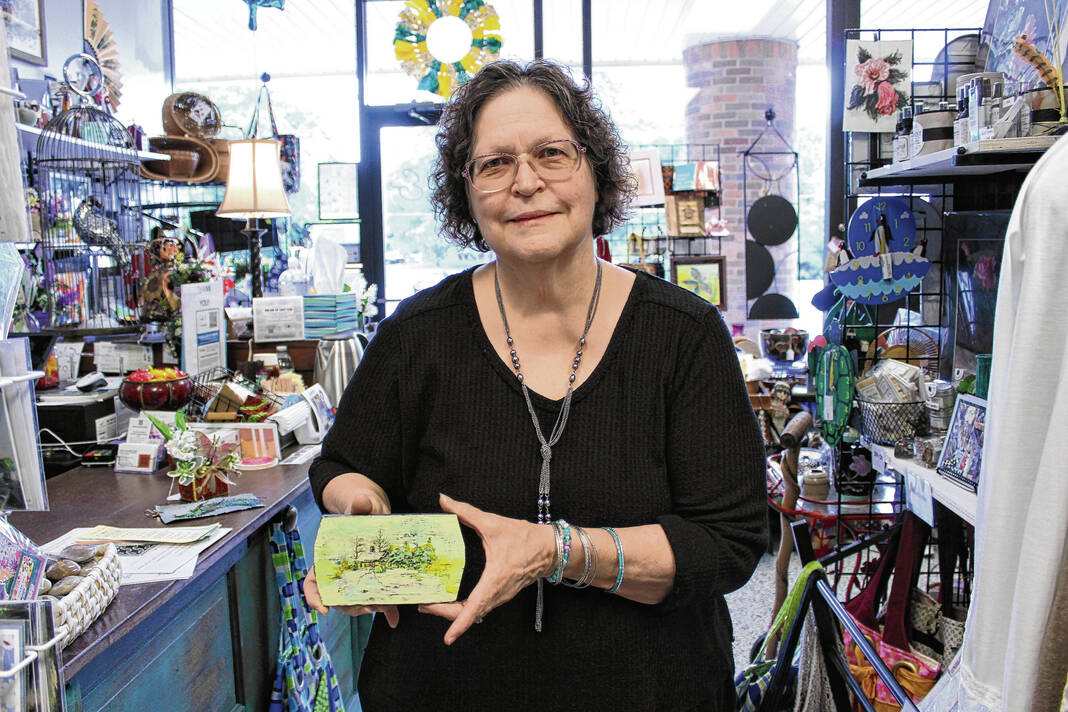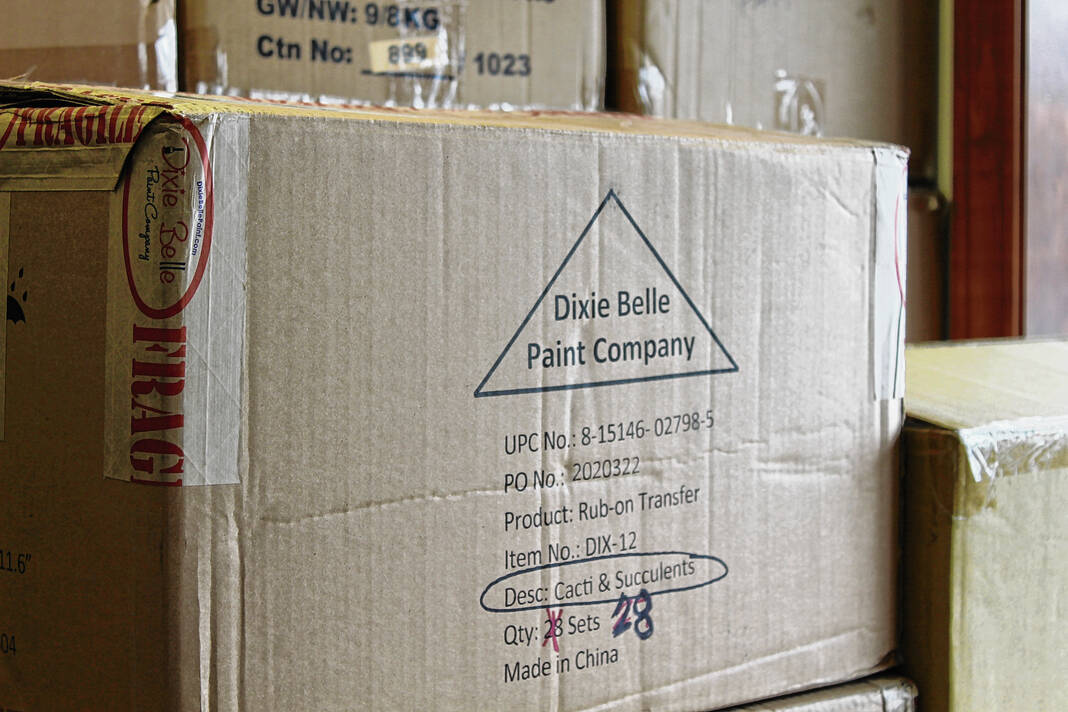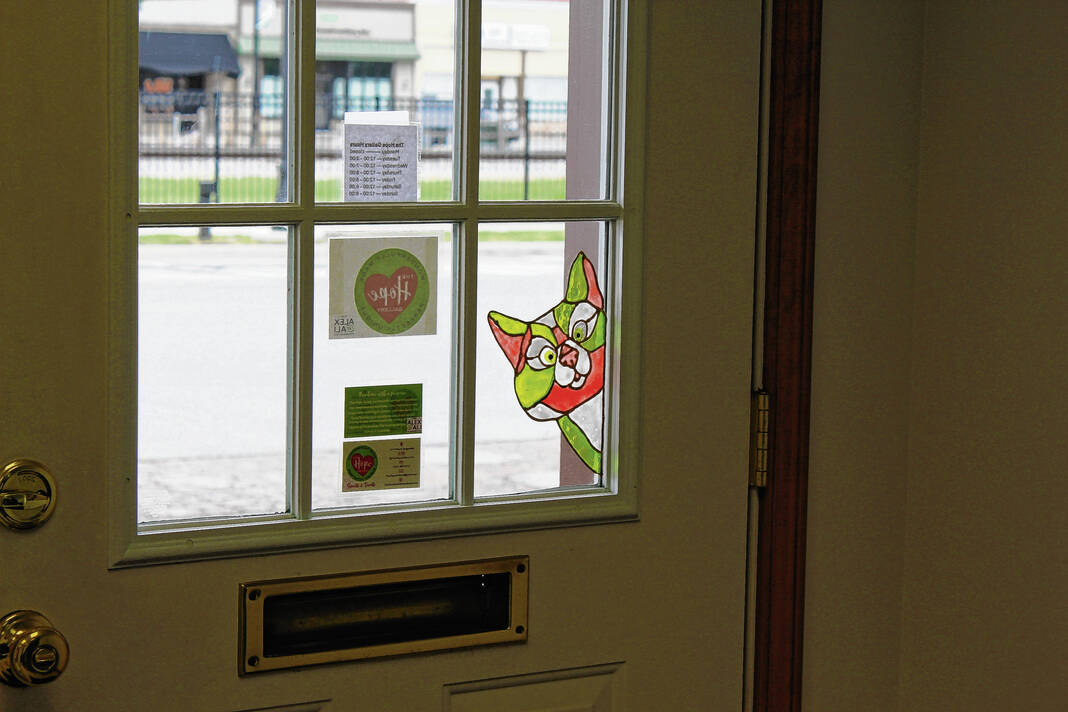From its small storefront in Bargersville, The Hope Gallery provides opportunities unlike any other place in the county.
Individuals with disabilities serve up ice cream treats, baked goods and candy, in addition to selling artwork and other items they make by hand. Not only do they learn valuable vocational skills, but they get to express their imagination at the same time.
Now, a generous donation will help the gallery offer even more creative experiences moving forward.
The Hope Gallery is benefiting from a partnership between Crafts & Creations, an art and DIY crafting-centric business in Greenwood, and Dixie Belle Paint Co. Together, they’ll be providing a selection of DIY art supplies to support the gallery’s programs.
The donation offers an excellent opportunity for Hope Gallery organizers to try something new with team members, said Sadie Stokes, director of its Bargersville location. Buying new supplies and planning new activities is not guaranteed to be successful, so the donation alleviates the financial burden that can come with it, Stokes said.
The donation consists of boxes stacked high full of transfers — enabling team members and others who come to The Hope Gallery to stick premade designs on various items such as furniture. Rickie Long, owner of Crafts & Creations, said the transfers are one of her favorite mediums because it makes mixed media more accessible.
“… A lot of people are intimidated by fine art, you know, and a lot of people can be intimidated by mixed media and they think that it’s outside their reach,” Long said. “… There’s something very freeing about it [transfers].”
Founded in 2018, The Hope Gallery is an extension of the Alex and Ali Foundation — named after two best friends who are on the autism spectrum — which provides employment opportunities and vocational training for adults with developmental disabilities. According to the Alex and Ali Foundation website, their focus is to provide safe opportunities for such individuals to “learn, work and interact with the community.”
“He [Alex] was nearing the end of his high school career, he and his best friend Ali … there was this gap of resources and employers willing to provide jobs for them or job training for them,” Stokes said.
Operating as an ice cream and sweet shop as well as a boutique, The Hope Gallery allows individuals as young as 16 to start working at their locations, learning job skills while also dismissing the negative stigmas around people with disabilities, Stokes said.
The significance of art supplies being donated is that creating things or doing crafts can help instill confidence into anybody, and that it especially aids those with disabilities with self-sufficiency goals, Long said.
“There’s just so many ways to repurpose, refurbish, create, recreate, make something your own, claim it, refresh it and let it loose in the world again,” Long said. “So the idea that a fairly expensive, you know, item, becomes easily accessible to a population that doesn’t usually get the best of anything is really getting one of the best products. You know, these (transfers) are $30 retail.”
Long will be hosting a training session with The Hope Gallery’s organizers to talk about ways that they can use the transfer donation with items that gallery team members can refurbish and eventually sell. Emphasizing the therapeutic aspect of creating art, Long said that stress and anger come out through the creation of something new and that, for neurodivergent individuals, it can be even more impactful.
“It is so healing to engage in those kinds of creative arts. … What matters is that you have a connection vehicle. So in that way, it’s not a competition. It’s not a comparison. You know, you’re not going to get an A in it,” Long said. “… But there’s a difference between the health impact of being lonely and the health impact of being rejected. So that’s the difference.”
Being able to work with Long is something Stokes is thankful for because, with having her teach how to use these art supplies properly, they will not have to go through a trial-and-error process.
She also emphasized that their work at The Hope Gallery continues to highlight the importance of disability awareness.
“For so many years, anyone with a disability had been hidden, shamed, not accepted in any facet of life,” Stokes said. “… Everyone needs to remember that people are people first and everyone is a human and should be treated as such. When you leave them out of the conversation, you are missing a whole plethora of ideas, thoughts.”


